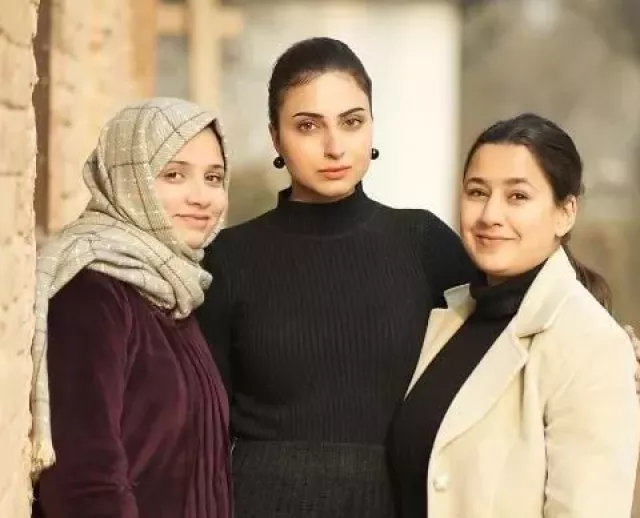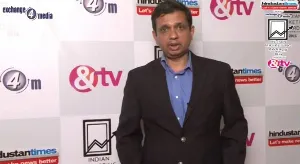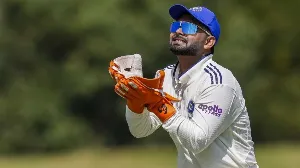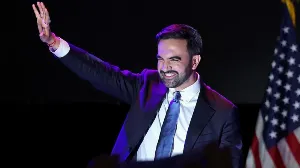Farrhana Bhatt defamation row: Reality TV contestant’s family takes legal action over ‘terrorist’ remark

Farrhana Bhatt’s family has initiated legal proceedings after the reality television participant was described as a “terrorist” in an online interview, alleging the accusation was defamatory and motivated by communal bias. The notice has been sent to Roshan Garry Bhinder, who is the aunt of fellow Bigg Boss 19 contestant and music composer Amaal Mallik, as well as to a YouTube channel and YouTube India.
According to a statement shared on Bhatt’s verified social media accounts, the family has sought the removal of the video, a public apology and ₹1 crore (£95,000) in compensation for what they describe as reputational and emotional harm. They have also asked two women’s rights bodies in India to intervene.
The controversy emerged after an interview published by the YouTube channel Fifafooz, in which Ms Bhinder reportedly referred to Ms Bhatt in inflammatory terms. The remarks drew immediate criticism on social platforms, prompting Bhatt’s representatives to take legal action.
Public statement and legal notice
In a press note, Bhatt’s family said they had been “deeply distressed” by what they characterised as false, hateful and “communal” comments directed at the actress. Bhatt is also a national-level Taekwondo athlete and currently appears on Bigg Boss 19, one of India’s most-watched reality shows.
The family said it had opted for legal measures rather than engaging in public confrontation. “The family has chosen to respond with dignity and legal recourse, rather than stoop to the level of mudslinging and online provocation,” the statement read.
The document added that the notice demands the immediate removal of the interview, a formal apology, and monetary damages. It also confirms that copies of the legal notice have been sent to the National Commission for Women and the Maharashtra State Commission for Women.
Accusation in interview
The remarks at the centre of the dispute came during an interview in which Ms Bhinder allegedly used the term “terrorist” to describe Ms Bhatt. According to video excerpts circulating online and cited in media reports, Ms Bhinder reportedly said she regretted using the term but proceeded to repeat it. She also made an additional derogatory comparison referencing mythical demonic figures.
The family called the statements “outrageous and baseless”, stating that such language had caused distress not only to Ms Bhatt but also to her relatives and supporters.
The statement issued by the family emphasised the legal seriousness of such an allegation in India, where wrongful accusations related to terrorism can lead to severe social and legal consequences. It also appealed to the public not to “spread unverified or hateful content” and urged media outlets to respect the ongoing legal process.
Reality show backdrop
Bigg Boss, hosted by Bollywood actor Salman Khan, is known for intense interpersonal conflicts among participants. The current season premiered in August and features public figures sharing a confined space for several weeks. Ms Bhatt briefly exited the house during the programme’s first week but later returned after a twist in the format.
Her appearance on the show and the ensuing controversy have attracted widespread public attention, highlighting the social influence of reality TV in India. It also reflects the country’s heightened sensitivity to allegations that touch upon national security issues or religious identity.
Context: Online speech and legal responsibility
India has witnessed increasing legal action linked to social media statements in recent years, with high-profile figures, political commentators and content creators facing lawsuits over defamation, hate speech and misinformation. Under Indian law, defamation can be pursued both as a civil and criminal matter.
Social platforms operating in India are required to remove content that violates local laws upon receiving legal notices. Companies like YouTube, owned by Google, are expected to cooperate with court-directed takedowns and ensure mechanisms are in place to prevent misuse of their services for harmful speech.
YouTube and Ms Bhinder have not publicly responded to the allegations at the time of publication. The extent of YouTube’s review of the content is unclear, though Bhatt’s representatives stated they had included the platform in the complaint due to its role in hosting and distributing the video.
Next steps
The legal proceedings are ongoing. If the parties do not meet the demands outlined in the notice, Bhatt’s family could escalate the dispute to court proceedings. The National Commission for Women and the Maharashtra State Commission for Women may also review the complaint and assess whether further action is necessary.
For now, Bhatt remains inside the Bigg Boss house, unable to comment publicly due to programme rules. Her family has said they will pursue all legal remedies available and maintain that the matter should be handled through official channels rather than online exchanges.
The case forms part of a wider discussion about responsible speech on digital platforms, the boundaries of commentary involving public personalities, and the balance between freedom of expression and protection from defamatory or hateful allegations. As the legal process unfolds, the dispute is likely to remain in the public spotlight, given the high profile of those involved and the popularity of the television programme.

Rakshit Hargave Joins Britannia Industries as New CEO

Asian Stock Markets Decline Amid Fears of AI Valuation Bubble

Rishabh Pant Returns as India Announces Test Squad for South Africa

Zohran Mamdani: Ugandans Celebrate New York Mayor of Ugandan Descent





